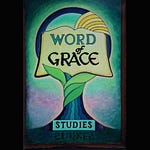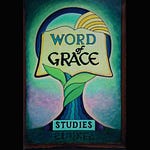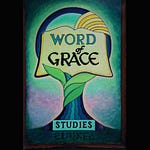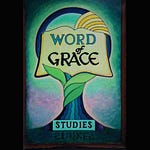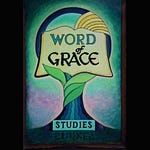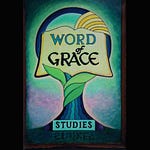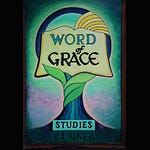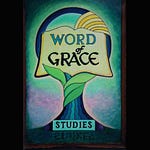Review
· All Judea Hears the Gentiles Have Received the Word of God (Acts 11:1–18)
· The Gospel Spreads Among the Gentiles (Acts 11:19–24)
· Paul’s Ministry to the Gentiles Begins (Acts 11:25–26)
· The Church Is Warned of a Coming Great Famine (Acts 11:27–30)
· The Persecution of the Church by Herod (Acts 12:1–19)
· Herod Is Struck Down by God (Acts 12:20–23)
Barnabas and Paul Are Sent Out (Acts 13:1–3)
In Antioch, the church had prophets and teachers (Acts 13:1):
Simeon, called Niger
His nickname indicates he had darker skin.
Lucius of Cyrene
His name indicates he was likely a Gentile.
Lucius is a common Roman name.
He is from Cyrene, a city in modern-day Libya, North Africa.
Mentioned again in Romans 16:21 as one of Paul’s fellow workers.
Manaen (who had connections to Herod’s court)
Saul (later known as Paul, the apostle)
Barnabas and Saul Are Sent Out from Antioch (Acts 13:2–3)
While they were rendering religious service, the Holy Spirit instructed them to send out Barnabas and Saul (Acts 13:2).
Although often translated as “worship,” λειτουργέω refers to the rendering of religious service (Romans 15:27; Hebrews 10:11).
They were instructed to separate Barnabas and Saul for the task to which God had previously called them (Acts 13:2).
After fasting and worship, they affirmed their calling and sent them out (Acts 13:3).
Barnabas and Saul Bring the Word of God to Cyprus (Acts 13:4–12)
Barnabas and Saul sailed to Cyprus, arriving in Salamis (Acts 13:5).
Salamis was located on the eastern coast of Cyprus, an island in the eastern Mediterranean Sea.
It was the principal port and largest city of Cyprus during the Roman period.
The presence of a synagogue indicates a significant Jewish diaspora community.
They were assisted by John (also known as Mark).
They encountered Bar-Jesus, a magician (Acts 13:6–12).
While traveling across the island, they met a Jewish false prophet (Acts 13:6).
He was with the proconsul, a Roman provincial governor, who desired to hear the word of God (Acts 13:7).
Elymas the magician opposed Barnabas and Saul, seeking to turn the proconsul away from the faith (Acts 13:8).
The Holy Spirit judges Elymas (Acts 13:9–11):
Paul, filled with the Holy Spirit, confronts him (Acts 13:9).
Elymas is called a child of the devil and an enemy of righteousness (Acts 13:10).
He is struck with temporary blindness (Acts 13:11).
As a result, Sergius Paulus believed the word of God (Acts 13:12).
The Word of God Comes to Antioch of Pisidia (Acts 13:13–52)
Paul and his companions sailed from Paphos to Perga in Pamphylia, where John Mark left them (Acts 13:13).
John Mark had been helping with travel, lodging, and provisions.
Arriving in Antioch of Pisidia, they went to the synagogue on the Sabbath (Acts 13:14).
After the reading of the Law and the Prophets, the synagogue rulers invited any word of exhortation (Acts 13:15).
Paul addressed the assembly (Acts 13:16):
He acknowledged both Israelites and God-fearing Gentiles.
God chose the ancestors of Israel (Acts 13:17).
He led them out of Egypt and sustained them in the wilderness for forty years (Acts 13:17–18).
He destroyed seven nations in Canaan and gave them the land (Acts 13:19).
All of this spanned about 450 years (Acts 13:20).
God gave them judges until the time of Samuel the prophet (Acts 13:20).
Israel asked for a king, and God gave them Saul (Acts 13:21).
God removed Saul and raised up David as king (Acts 13:22).
From David’s lineage, God brought forth a Savior—Jesus—as promised (Acts 13:23).
Before Jesus' appearance, John preached a baptism of repentance (Acts 13:24).
At the end of his ministry, John declared the coming of one greater than himself (Acts 13:25).
The message of salvation was sent to Israel and those who fear God (Acts 13:26).
Those in Jerusalem and their rulers fulfilled the words of the prophets by condemning Jesus (Acts 13:27).
Though they found no fault in Him, they handed Him over to Pilate for execution (Acts 13:28).
After fulfilling all that was written, Jesus was buried (Acts 13:29).
But God raised Him from the dead (Acts 13:30), and He appeared to many witnesses (Acts 13:31).
Paul declared that this good news was the fulfillment of God's promises (Acts 13:32–37):
The promise made to the fathers was fulfilled to their children (Acts 13:32–33).
God raised Jesus from the dead, as foretold in Scripture (Acts 13:34–37).
Paul proclaimed the sending away (forgiveness) of sins through Jesus (Acts 13:38–39).
He warned them with the words of the prophets concerning scoffers (Acts 13:40–41).
The people requested to hear more the following Sabbath (Acts 13:42).
Many Jews and devout converts followed Paul and Barnabas (Acts 13:43).
The Jewish leaders, seeing the large crowds, became jealous (Acts 13:45–47):
They opposed Paul and Barnabas and spoke against them (Acts 13:45).
Paul and Barnabas responded boldly, stating that the word of God was to be proclaimed first to the Jews (Acts 13:46).
Since they rejected it, the apostles turned to the Gentiles (Acts 13:47).
The Gentiles rejoiced upon hearing that salvation had come to them (Acts 13:48).
The word of the Lord spread throughout the region (Acts 13:49).
Paul and Barnabas shook the dust from their feet against those who opposed them and traveled to Iconium (Acts 13:50–51).
The disciples were filled with joy and with the Holy Spirit (Acts 13:52).



